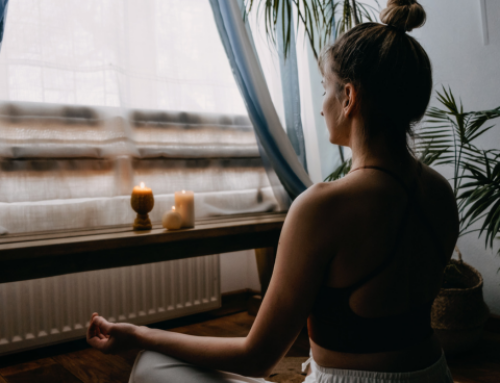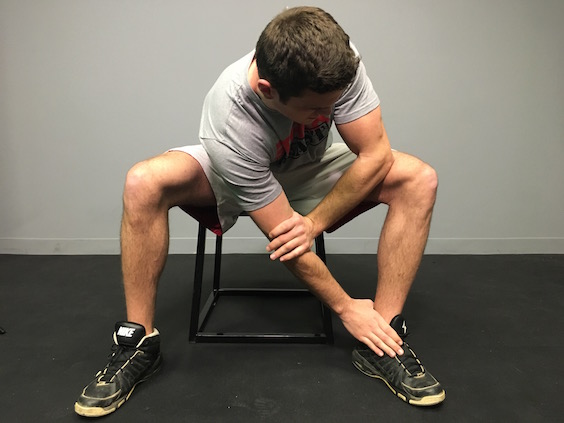What to Do (And Not Do) When You Can’t Fall Asleep
You can read about the latest advances in training, take all the top-of-the-line supplements, and eat the cleanest diet imaginable, but if you’re not getting enough rest, your performance will suffer.
In my opinion, rest is the undisputed biggest factor that determines how well you will perform in training, games, or any other competitive event. Sleep and recovery are paramount to physical performance.
Sleep is, in many ways, a legal performance-enhancing drug.
However, we have all had those nights when for whatever reason, we can’t drift off to dream land.
We toss and turn. We count sheep. We try to use the bathroom. But nothing seems to work. All the while we know we’re losing precious potential sleep time as our morning alarm draws near. It can feel like a hopeless situation, but there are strategies that can help you overcome sleeplessness.
The next time you find yourself struggling to fall asleep, try this.
1. Focus on Deep Breathing in the Dark
Step one: see if you can make your room darker.
There’s a reason LeBron James makes sure his hotel room is always completely dark before he tries to doze off.
The darker your room is, the better your odds of falling asleep.
So lights off, TV off, tablet off, laptop off, phone off, curtains fully drawn, etc.
Now lie in the bed and find a comfortable position.
Once you’re there, focus on your breathing. Deep, slow breathing.
Deep breath in.
Deep breath out.
Slower.
Deep breath in.
Deep breath out.
Slower.
The worst thing you can do when you can’t fall asleep is to get worked up about it.
Deep, slow breathing in a completely dark room can quickly shift you into that sleepy place.
2. Do Something That Helps You Relax
OK, maybe your body simply isn’t ready to shut down yet.
Instead of trying to force it, do something quiet and relaxing.
These actives can include reading a book, listening to calm music, or simply looking outside.
If you need light, keep it to a minimum.
3. Take a Warm Shower
A warm shower can help your muscle relax and your mind unwind.
It can also be beneficial to your joints.
While you’re in there, take deep breaths and try to relax.
Once you’ve done what you need to do and you feel like you’re a little more relaxed, get dried off and try to go back to bed.
4. Drink an Herbal Tea
There are various herbs and plants that can help the body relax when needed.
These can be healthy allies at bedtime.
Teas that have chamomile, lavender, lemon balm, peppermint, and valerian or any combination of them can be enjoyed around 30 minutes before you plan to go to bed.
Make sure they are caffeine-free before consuming them, because that will achieve the opposite effect.
And on this topic, while many rely on alcohol to help them fall asleep, research has shown that even rather small amounts of alcohol can reduce your REM sleep and inhibit protein synthesis. So while it might help you fall asleep quicker, you’re actually waking up less rested and less recovered because of it.
5. Write Out What’s on Your Mind
Sometimes, it’s the voice in our own head that keeps us from falling asleep.
Maybe you’ve been dealing with a lot of stress lately, and your mind can’t stop running through a dialogue on it.
One solution to quiet this voice is to literally get it out of yourself by writing it down on paper.
Write the issue down on paper and come up with something you can do to address or improve it tomorrow.
You’d be amazed at how this simple act can help you quiet your mind.
And if you feel you’ve got more than one thing bothering you, repeat this process. Write down exactly what it is and what you’ll do tomorrow to make positive progress regarding it.
Once you’re done, place this list on your nightstand or somewhere you’re sure to see it tomorrow. Not only can this help you get to sleep more quickly that night, but it can also provide positive momentum to reduce your overall level of stress moving forward.
I’m certain that one or more of these strategies can help you fall asleep quicker than you would otherwise.
However, it’s just as important to remember what not to do during these situations.
Don’t try to force yourself to sleep if it isn’t happening. You’ll be attempting to make your body do something, which means your brain will be working. That’s counterproductive.
Do not turn on your TV or start scrolling around on your cell phone. It’s not going to help you sleep, and once you fall into that vortex, you can quickly find yourself still awake one, two or even three hours later.
If you feel you have to resort to medication, talk to your doctor.
Over-the-counter sleep meds can solve your issue for a night or two, but if you keep going back to them, it can causes issues such as dependency.
Photo Credit: yanyong/iStock
READ MORE:
RECOMMENDED FOR YOU
MOST POPULAR
What to Do (And Not Do) When You Can’t Fall Asleep
You can read about the latest advances in training, take all the top-of-the-line supplements, and eat the cleanest diet imaginable, but if you’re not getting enough rest, your performance will suffer.
In my opinion, rest is the undisputed biggest factor that determines how well you will perform in training, games, or any other competitive event. Sleep and recovery are paramount to physical performance.
Sleep is, in many ways, a legal performance-enhancing drug.
However, we have all had those nights when for whatever reason, we can’t drift off to dream land.
We toss and turn. We count sheep. We try to use the bathroom. But nothing seems to work. All the while we know we’re losing precious potential sleep time as our morning alarm draws near. It can feel like a hopeless situation, but there are strategies that can help you overcome sleeplessness.
The next time you find yourself struggling to fall asleep, try this.
1. Focus on Deep Breathing in the Dark
Step one: see if you can make your room darker.
There’s a reason LeBron James makes sure his hotel room is always completely dark before he tries to doze off.
The darker your room is, the better your odds of falling asleep.
So lights off, TV off, tablet off, laptop off, phone off, curtains fully drawn, etc.
Now lie in the bed and find a comfortable position.
Once you’re there, focus on your breathing. Deep, slow breathing.
Deep breath in.
Deep breath out.
Slower.
Deep breath in.
Deep breath out.
Slower.
The worst thing you can do when you can’t fall asleep is to get worked up about it.
Deep, slow breathing in a completely dark room can quickly shift you into that sleepy place.
2. Do Something That Helps You Relax
OK, maybe your body simply isn’t ready to shut down yet.
Instead of trying to force it, do something quiet and relaxing.
These actives can include reading a book, listening to calm music, or simply looking outside.
If you need light, keep it to a minimum.
3. Take a Warm Shower
A warm shower can help your muscle relax and your mind unwind.
It can also be beneficial to your joints.
While you’re in there, take deep breaths and try to relax.
Once you’ve done what you need to do and you feel like you’re a little more relaxed, get dried off and try to go back to bed.
4. Drink an Herbal Tea
There are various herbs and plants that can help the body relax when needed.
These can be healthy allies at bedtime.
Teas that have chamomile, lavender, lemon balm, peppermint, and valerian or any combination of them can be enjoyed around 30 minutes before you plan to go to bed.
Make sure they are caffeine-free before consuming them, because that will achieve the opposite effect.
And on this topic, while many rely on alcohol to help them fall asleep, research has shown that even rather small amounts of alcohol can reduce your REM sleep and inhibit protein synthesis. So while it might help you fall asleep quicker, you’re actually waking up less rested and less recovered because of it.
5. Write Out What’s on Your Mind
Sometimes, it’s the voice in our own head that keeps us from falling asleep.
Maybe you’ve been dealing with a lot of stress lately, and your mind can’t stop running through a dialogue on it.
One solution to quiet this voice is to literally get it out of yourself by writing it down on paper.
Write the issue down on paper and come up with something you can do to address or improve it tomorrow.
You’d be amazed at how this simple act can help you quiet your mind.
And if you feel you’ve got more than one thing bothering you, repeat this process. Write down exactly what it is and what you’ll do tomorrow to make positive progress regarding it.
Once you’re done, place this list on your nightstand or somewhere you’re sure to see it tomorrow. Not only can this help you get to sleep more quickly that night, but it can also provide positive momentum to reduce your overall level of stress moving forward.
I’m certain that one or more of these strategies can help you fall asleep quicker than you would otherwise.
However, it’s just as important to remember what not to do during these situations.
Don’t try to force yourself to sleep if it isn’t happening. You’ll be attempting to make your body do something, which means your brain will be working. That’s counterproductive.
Do not turn on your TV or start scrolling around on your cell phone. It’s not going to help you sleep, and once you fall into that vortex, you can quickly find yourself still awake one, two or even three hours later.
If you feel you have to resort to medication, talk to your doctor.
Over-the-counter sleep meds can solve your issue for a night or two, but if you keep going back to them, it can causes issues such as dependency.
Photo Credit: yanyong/iStock
READ MORE:












